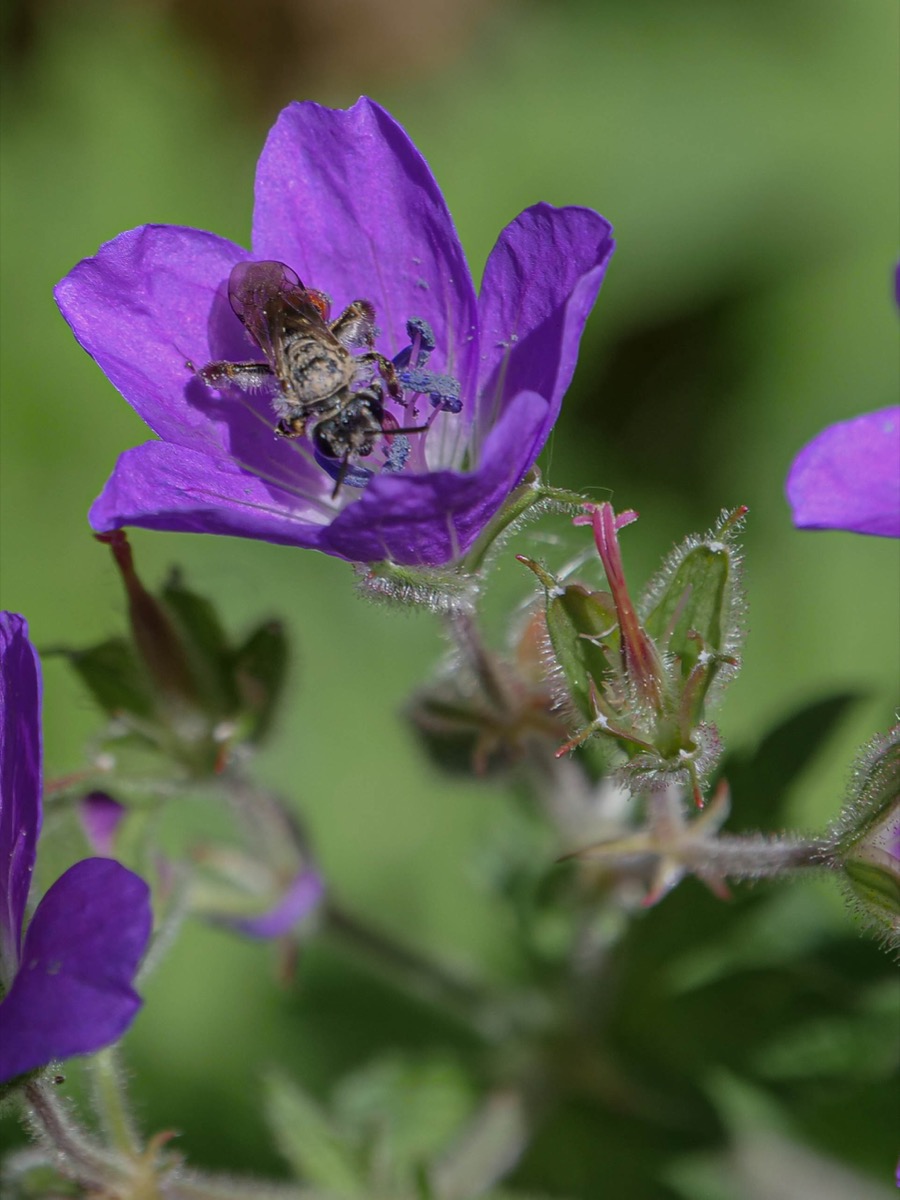Andrenidae – Mining bees comprise primarily oligolectic species, meaning they forage for pollen from a single type of plant, and are therefore associated with specific flowers.
Characteristics
- Small to medium-sized bees
- Often dense, brownish to light-colored hair
- Compact head and thorax, striped or black abdomen
- Simple wing venation
- Frequent presence of longitudinal ridges on the propodeum
Habitat
Andrenidae prefer:
- Bare or sparsely vegetated soils
- Embankments, dry grasslands, sand pits, roadsides
- Well-exposed gardens and fallow land
Biology
- Solitary bees: each female builds her own nest
- Nests dug in the ground, often in clusters but without cooperation
- Activity period: mainly in spring
- Floral preferences:
- Some species are oligolectic (e.g., Andrena vaga on willows)
- Others are polylectic
Ecological importance
Mining bees play a key role in the pollination of early-blooming plants, especially in temperate environments. Their diversity and floral specialization make them valuable ecological indicators.
